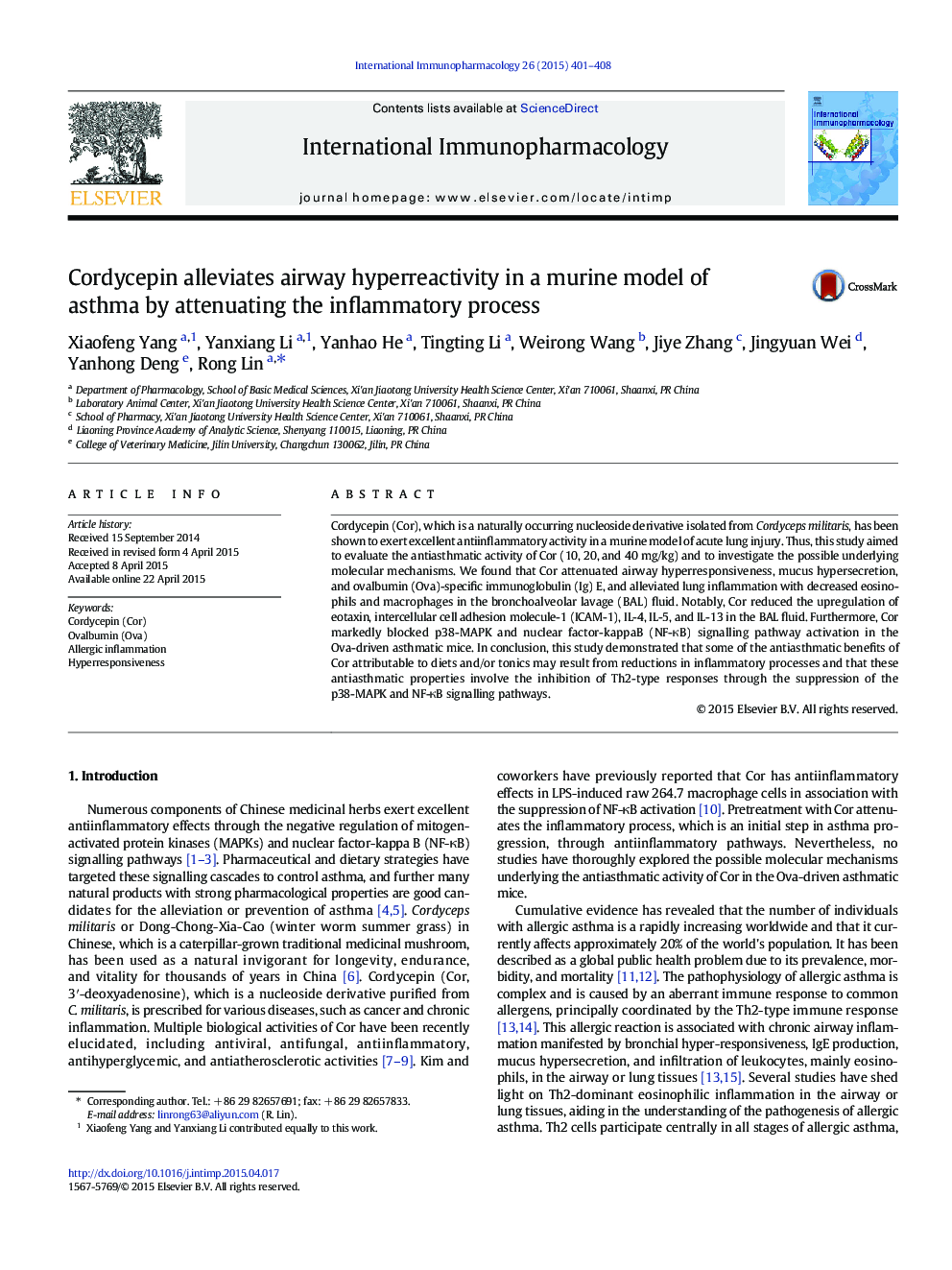| Article ID | Journal | Published Year | Pages | File Type |
|---|---|---|---|---|
| 2540537 | International Immunopharmacology | 2015 | 8 Pages |
•Cordycepin could be considered as an adjuvant therapy for allergic asthma.•Effect of cordycepin on asthma is attributed to mitigating airway inflammatory process.•Cordycepin exhibits a protective effect on asthma by suppression of hyperresponsiveness and can be exploited therapeutically.
Cordycepin (Cor), which is a naturally occurring nucleoside derivative isolated from Cordyceps militaris, has been shown to exert excellent antiinflammatory activity in a murine model of acute lung injury. Thus, this study aimed to evaluate the antiasthmatic activity of Cor (10, 20, and 40 mg/kg) and to investigate the possible underlying molecular mechanisms. We found that Cor attenuated airway hyperresponsiveness, mucus hypersecretion, and ovalbumin (Ova)-specific immunoglobulin (Ig) E, and alleviated lung inflammation with decreased eosinophils and macrophages in the bronchoalveolar lavage (BAL) fluid. Notably, Cor reduced the upregulation of eotaxin, intercellular cell adhesion molecule-1 (ICAM-1), IL-4, IL-5, and IL-13 in the BAL fluid. Furthermore, Cor markedly blocked p38-MAPK and nuclear factor-kappaB (NF-κB) signalling pathway activation in the Ova-driven asthmatic mice. In conclusion, this study demonstrated that some of the antiasthmatic benefits of Cor attributable to diets and/or tonics may result from reductions in inflammatory processes and that these antiasthmatic properties involve the inhibition of Th2-type responses through the suppression of the p38-MAPK and NF-κB signalling pathways.
